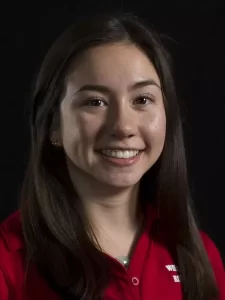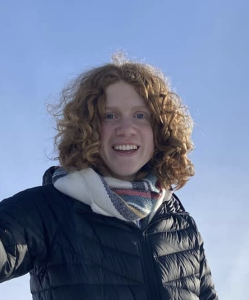Project Type: Graduate student assistantship
-
Impact of whey protein phospholipid concentrate supplementation on steoporosis and sarcopenia
As people age, they often lose muscle and bone strength, which can lead to frailty, poor mobility, and a higher risk of fractures—especially in postmenopausal women. Our research explores how…
-
Evaluating novel dietary strategies to enhance nitrogen utilization efficiency in dairy cows
Microbial true protein (MTP), produced in a cow’s rumen, is a key protein source, but only about 80% is digestible in the small intestine. By increasing MTP digestibility, researchers hope…
-
Engineering beyond the brown midrib phenotype: Using tissue- and cell-type specific engineering to improve the agronomic traits of digestible brown midrib maize mutants
Brown midrib (bm) maize mutants are known for their improved forage digestibility, but they often suffer from poor plant growth, limiting their use on farms. This project aims to genetically…
-
The antimicrobial dilemma: Exploring the effects of prophylactic antimicrobials on microbial colonization and immune development in dairy calves
The preweaning period is one of the most vulnerable stages in a dairy calf’s life, with high rates of illness and death still common across North America. While antibiotics have…
-
Fluidized bed drying (FBD) vs. spray drying (SD) of liquid whey protein phospholipid concentrate (WPPC): oxidate self-life, in-vitro digestion, and therapeutic potential
Whey Protein Phospholipid Concentrate (WPPC) is prone to oxidation during processing and storage, which reduces its quality and value. This project explores a new fluidized bed drying (FBD) method that…
-
Assessing the functionality of a promising new dairy ingredient (WPPC) on the health of post-menopausal women
Whey protein phospholipid concentrate (WPPC), a byproduct of whey protein production, is often discarded or used as animal feed, despite being rich in valuable nutrients like choline. This project aims…
-
Genomic solutions to reduce fetal loss in dairy cattle
Pregnancy loss after 42 days of gestation is a major barrier to reproductive efficiency in dairy herds, impacting animal welfare, milk production, and farm profitability. This graduate research project will…
-
A collaborative initiative for continuous groundwater nitrate monitoring in Western Wisconsin leveraging legacy well data and novel sensing technologies
Nitrate contamination in groundwater poses risks to both human and animal health, especially in rural communities. This project will pilot a collaboration between UW–Madison and UW–River Falls to develop a…
-
Development of analytical modeling tools to assess changes to milk pricing under Federal Milk Marketing Orders
The principal justification for this project is that FMMO regulation plays a key role in determining milk prices and profitability for the majority of US dairy farms, and we currently…
-
Ecological intensification for productivity, profitability, soil health, and carbon sequestration in the dairy-forage and cash-grain agroecosystems of the North Central US
Several farming practices (e.g., cover crops, no-till) are promoted to improve soil health, sequester carbon (SOC), and enhance crop yields and economic returns. However, the efficacy of such practices is…










